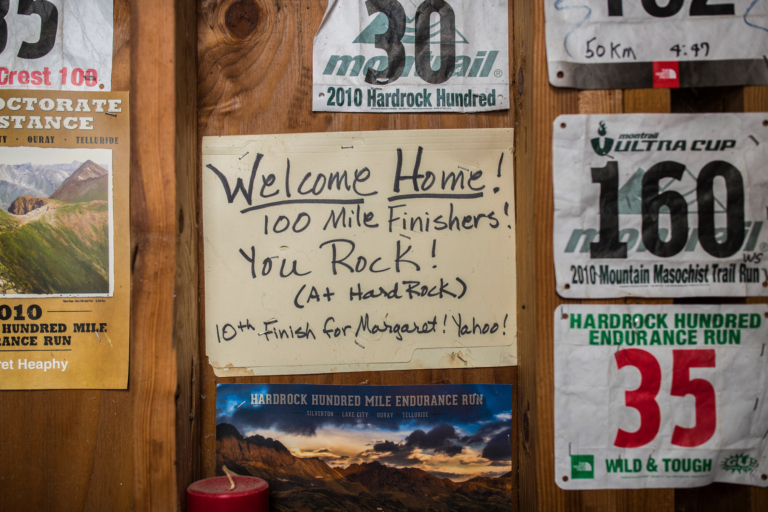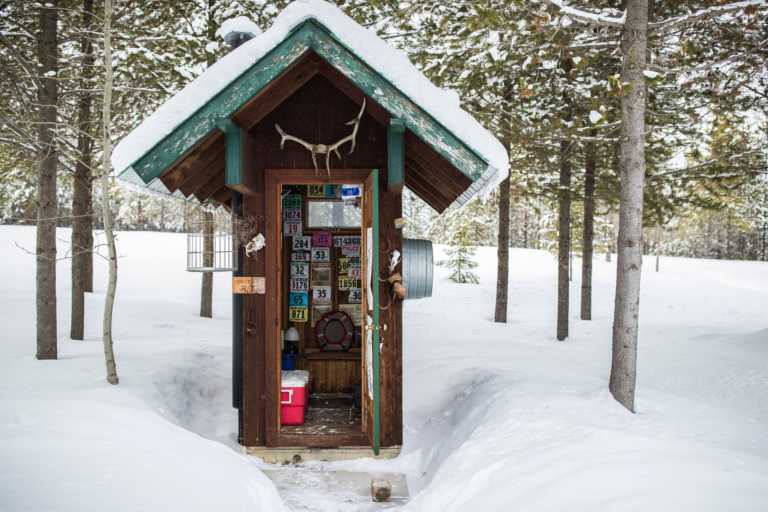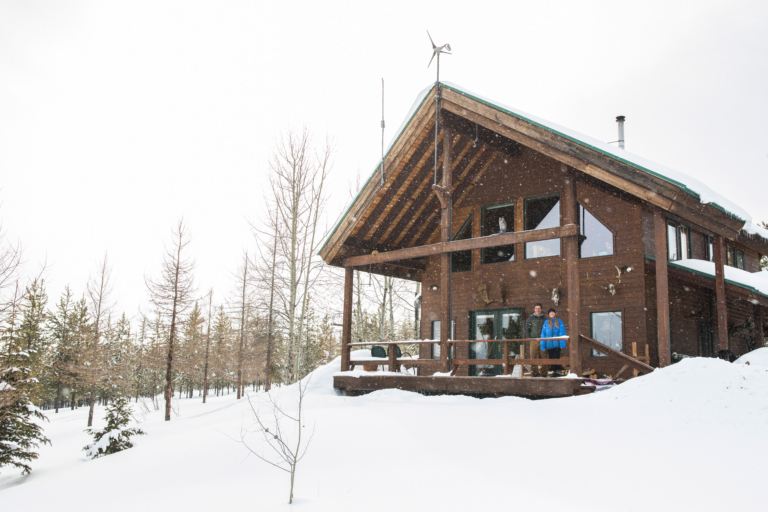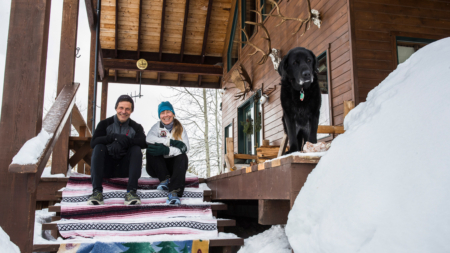Soulcraft
Words and wisdom from two Montana runners.
I followed a dirt road and the particles of a story to get there. Directions scribbled on the back of an envelope. North Fork Road from Columbia Falls, past the entrance to Glacier and onward, along the winding river which dips in and out of sight. Big fat flakes of snow melting against the windshield. A man in fleece-lined Carhartts attached chains to a parked logging truck at the top of the grade. Fresh bear tracks punched through the berms left behind by the plow. I kept going, until I was there.
“There” was a dream and a timber frame house not quite at the Canadian border, but close. Close enough that they know the border patrol agent by name. “They” are Margaret and Mark Heaphy, who built the dream from saplings and youth. The dream is this: to run and ski and climb mountains out the back door, each with more amplitude as the seasons change. To watch the seasons change from the wraparound porch of a house that started as a one room cabin and still has no indoor plumbing, though the solar panel work and subsequent electricity was a welcome addition a few years back. To engage in relentless self-sufficiency and to treat each part of the process as soulcraft, borrowing a term from the Matthew B. Crawford book. The dream is curiosity. It’s a poetic distillation of determination.

Race bibs and handwritten notes. Photo: Tim Davis
Mark is 58 but looks like he could be 35. He taught math at the University of Montana, before they moved up here full-time. He now dresses primarily in well-worn work pants and race T-shirts. When I arrived, he was clearing snow from the neighbor’s road with a red tractor. He tells stories with a self-effacing candor, in a voice that sounds like John Prine. Margaret is 63 and tiny, with long blonde hair slowly turning silver and crinkles around her eyes. Her hands are calloused from years of forestry and fire crew work, and she executes every movement with an unteachable athletic elegance.
Neither can point to when or the reason they started running. Perhaps it was always there. Mark ran laps on an aircraft carrier during his time in the Marines and Margaret ran her first race while working on trail crews in Glacier. She was one of the first women ever to finish the Hardrock 100, and once stopped midway through the race, ordered a burger at a bar in Telluride, ate it, and went on to win. They met because of running and cross country skied 30 miles together on their first date. Mark often says that the first time he showed up at Hardrock, everyone knew him because of her. They finish each other’s stories, but not in the impatient way of couples who interject with details they feel are important that the other is leaving out. Listening to them is like watching two people crew for each other.
They started running 100-mile races when there were only eight to choose from, when you learned about a race by word of mouth, or in a black and white copy of Ultrarunning Magazine. And in the intervening years the two have become inconspicuously legendary. When I stopped to pick up skis in the Nordic shop in Whitefish, the man at the counter gave me faster ones when he heard who I was driving to visit. “You’re going to want these if you want to keep up with Margaret,” he said.
“Determination” was the word Mark used to counter my question about whether he and Margaret are competitive. “For us I think it’s about the pure aspect of just being in the mountains. That’s a big thing for Margaret and I. If we’re running or skiing, just being out there in the mountains.” The outhouse is papered in old race bibs. They’re slowing down, but they’ll still run. Mark ran his twentieth Hardrock the summer after I visited.

The outhouse. Photo: Tim Davis
We talked for hours about running and about Montana; sections of trails and memories from races. Stomach issues and people we all know. The light changed from morning to afternoon and bounced around the details of the house. Hides tanned by hand with the stories of past hunts. Photographs tacked to the doorframe. The woodstove crackling. A beam with a tiny engraving of two people sitting by a campfire.

Winter in Montana. Photo: Tim Davis
Then we went skiing on the track Mark cut around the property. Margaret took the lead, graceful balanced strides through the sunlit crystals. Their 12-year-old lab, Sadie, watched from the porch. This is normal. Winter is for skiing; summer is for running. In between they hunt and hike and work. The transition in time is the process of learning a place. Of knowing a place. “That’s the thing about seasons,” Mark said. “A familiar place looks totally different as it changes, or over the years. But that’s like any relationship. A relationship with a place, or a person, or a run.”

